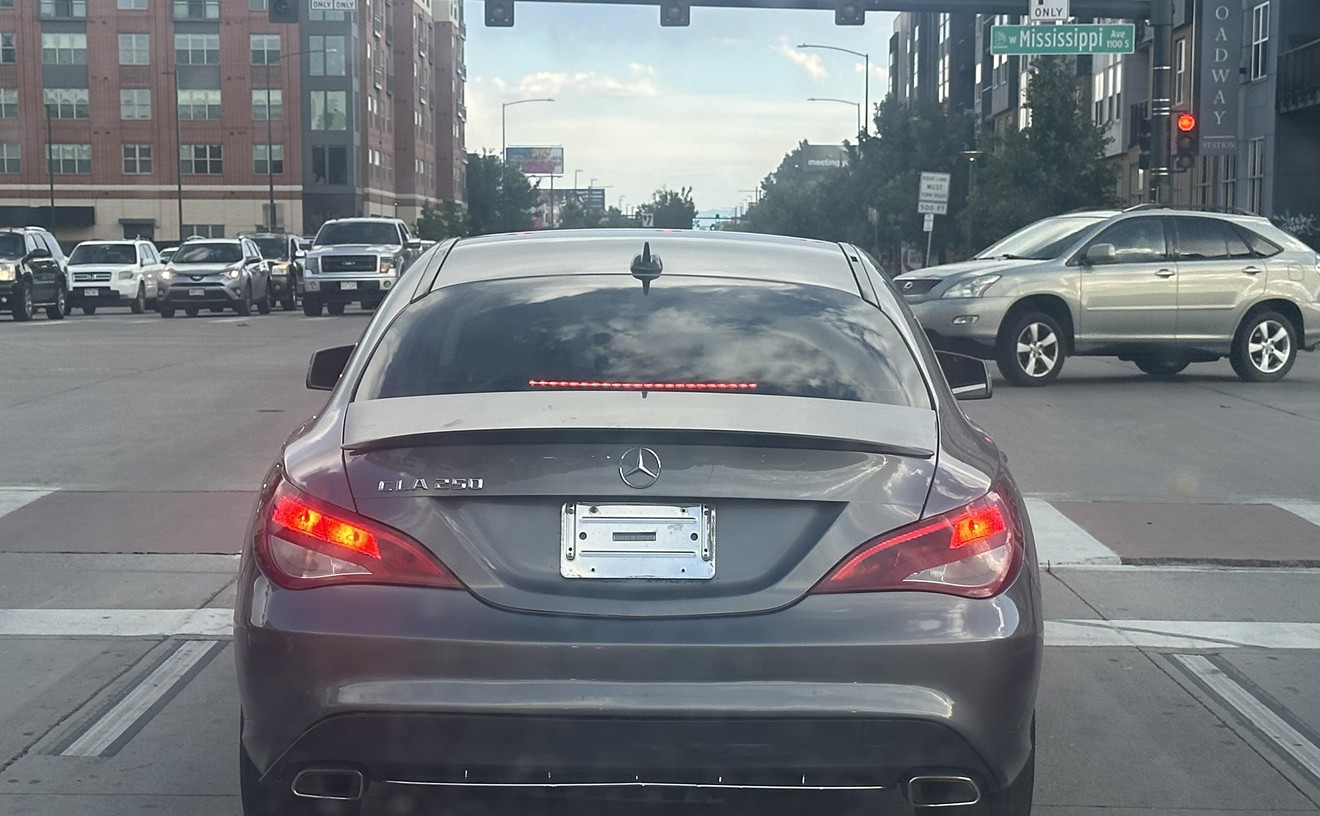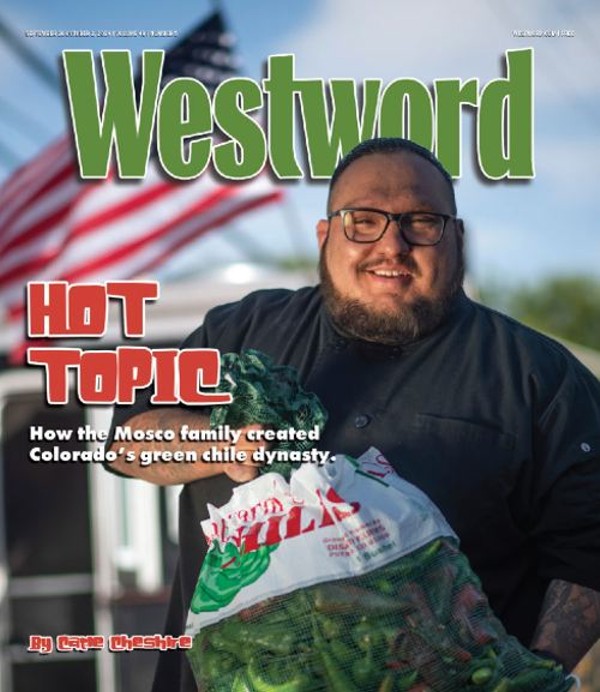The haze of battle could soon descend on the Colorado Capitol as state lawmakers consider a proposal to ban the sale of flavored nicotine products.
"It’s not an easy topic to address. This is a contentious topic," says Representative Kyle Mullica, a Democrat from Federal Heights who is co-sponsoring the bill with Representative Jennifer Bacon, a Denver Democrat; Senator Rhonda Fields, a Democrat from Aurora; and Senator Kevin Priola, a Republican from Henderson.
As currently written, House Bill 1064 would ban the sale of flavored nicotine products, including hookah tobacco, flavored vaping juices and menthol cigarettes, with no exceptions.
"I just think it’s good policy," says Priola. "I think the data shows that flavors are targeted toward attracting young people to smoking and minority folks who disproportionately have health-care issues from it and costs. It doesn’t prohibit the sale of tobacco. It basically says you have to sell tobacco in the original flavor."
But given how much money is at stake for tobacco companies and store owners, the fight over the bill will be intense. "The industry that makes a lot of money off of kids and folks in certain communities by addicting them to substances, they’re well financed," Priola notes.
But health-care advocates also come armed with arguments. While youth smoking rates have been dropping, youth vaping rates have increased significantly in recent years. Starting in 2014, electronic cigarettes became the most commonly used tobacco product among youth. Those pushing to ban the sale of flavored tobacco products say that flavors are often what draw kids into vaping.
In a 2019 survey conducted by the Centers for Disease Control and Prevention, 27.5 percent of high school students reported using an electronic cigarette within the past thirty days, though that figure dropped to 19.6 percent for 2020.
By January 19, 31 lobbyists had already registered to work on the bill, which was only introduced in the Colorado House of Representatives on January 14. Five of those lobbyists are representing the Tobacco-Free Kids Action Fund; the Campaign for Tobacco-Free Kids has been partnering with Bloomberg Philanthropies in recent years to tackle the issue of youth vaping. Three lobbyists have also signed up for the American Heart Association.
On the other side, R.J. Reynolds Tobacco Company, which boasts brands like Camel, Newport and vaping subsidiary Vuse, has lobbyists on board to oppose the bill. So does Altria, which has a subsidiary that produces Marlboro cigarettes and another one that produces popular brands of dip tobacco, most of which is flavored. Altria also has sizable investments in the vaping industry.
A handful of municipalities in Colorado, including Edgewater and Boulder, have already banned the sale of flavored tobacco products. And while a recent effort in Denver failed, that fight showed how the flavor-ban proposal could proceed in the state legislature.
In late 2021, Denver City Council debated a proposal co-sponsored by councilmembers Amanda Sawyer and Debbie Ortega that would have banned most forms of flavored tobacco, with exemptions for hookah tobacco, premium cigars and pipe tobacco.
The discussion in Denver often turned on questions related to race. One side argued that a ban on the sale of menthol cigarettes would disproportionately affect the ability of Black smokers to choose the products that they enjoy, while public-health advocates countered that tobacco companies have used menthol cigarettes to target the Black market for decades and that a ban on the sale of such products was for the public good.
In an 8-3 vote, council approved the flavor ban in early December. But Mayor Michael Hancock vetoed the bill, expressing concerns that by exempting certain products, such as hookah tobacco and premium cigars, while still banning the sale of menthol cigarettes, council was picking winners and losers. Hancock also said that he preferred a flavor ban on a statewide level.
Now he could be getting that, though similar arguments to those heard in Denver are already emerging. For example, Fields highlights where she stands on the issue of race and menthol cigarettes with this: "I grew up in a black neighborhood. What was displayed and promoted were menthol cigarettes."
Fields, Priola and Mullica say they're all open to hearing arguments for a potential carve-out for hookah tobacco. Hookah lounges cater to immigrants, especially those hailing from the Middle East and North Africa.
"That’s something that we’re going to have to work through. I have not participated in any stakeholder meetings yet," Fields says. "The voice of the citizen, the voice of the owner of these smoke shops and regular citizens, they deserve to be heard. I think that’s how you come up with the best possible legislation — when you listen to citizens."
Proponents of vaping also argue that tasty vaping products help people quit smoking traditional cigarettes.
"I think that it’s a valid argument — the argument of 'I'm an adult and I should be able to make decisions on my own,'" says Mullica, who works as an emergency-room nurse. "I think that the issue we have and we’re trying to balance is that these products have been a way to attract children and youth using them, and we have to balance that out."
The California Legislature approved a flavor ban bill in 2020; it had exemptions for hookah tobacco, premium cigars and pipe tobacco. Since then, large tobacco companies have poured millions of dollars into an effort to overturn that ban through a statewide referendum.
The same thing could happen in Colorado — if the legislature manages to pass a statewide flavor ban and Governor Jared Polis signs it into law. But that's not guaranteed, either.
"The Governor has signed legislation providing local governments authority to regulate tobacco products," notes Conor Cahill, spokesperson for Polis, "and as a general philosophy, he prefers local control because our local governments are closest to the people they represent."

Audio By Carbonatix
[
{
"name": "Air - MediumRectangle - Inline Content - Mobile Display Size",
"component": "12017618",
"insertPoint": "2",
"requiredCountToDisplay": "2",
"watchElement": ".fdn-content-body",
"astAdList": [
{
"adType": "rectangle",
"displayTargets": "mobile"
}
]
},{
"name": "Editor Picks",
"component": "17242653",
"insertPoint": "4",
"requiredCountToDisplay": "1",
"watchElement": ".fdn-content-body",
"astAdList": [
{
"adType": "rectangleLeft",
"displayTargets": "desktop|tablet"
},{
"adType": "rectangleRight",
"displayTargets": "desktop|tablet|mobile"
}
]
},{
"name": "Inline Links",
"component": "18838239",
"insertPoint": "8th",
"startingPoint": 8,
"requiredCountToDisplay": "7",
"maxInsertions": 25
},{
"name": "Air - MediumRectangle - Combo - Inline Content",
"component": "17261320",
"insertPoint": "8th",
"startingPoint": 8,
"requiredCountToDisplay": "7",
"maxInsertions": 25,
"watchElement": ".fdn-content-body",
"astAdList": [
{
"adType": "rectangleLeft",
"displayTargets": "desktop|tablet"
},{
"adType": "rectangleRight",
"displayTargets": "desktop|tablet|mobile"
}
]
},{
"name": "Inline Links",
"component": "18838239",
"insertPoint": "8th",
"startingPoint": 12,
"requiredCountToDisplay": "11",
"maxInsertions": 25
},{
"name": "Air - Leaderboard Tower - Combo - Inline Content",
"component": "17261321",
"insertPoint": "8th",
"startingPoint": 12,
"requiredCountToDisplay": "11",
"maxInsertions": 25,
"watchElement": ".fdn-content-body",
"astAdList": [
{
"adType": "leaderboardInlineContent",
"displayTargets": "desktop|tablet"
},{
"adType": "tower",
"displayTargets": "mobile"
}
]
}
]












